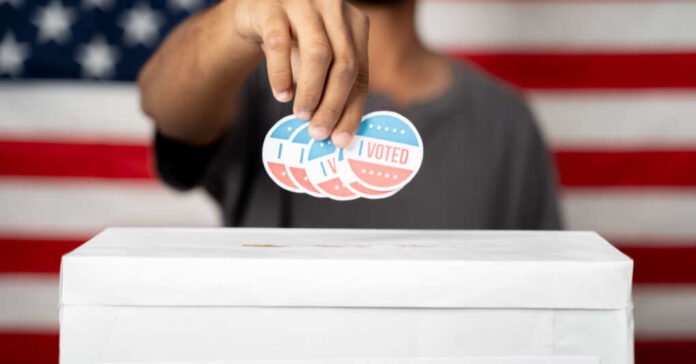
The investigation into possible ballot petition fraud in Indiana has deepened as another county reports an abundance of questionable signatures associated with the campaign of Democratic presidential candidate Dean Phillips. This recent scandal echoes one that once rocked Michigan’s gubernatorial race in 2022.
The controversy centers on accusations against an external company hired by Phillips’ team for petitioning efforts. This is also reminiscent of the Michigan fraud debacle, which disqualified several gubernatorial candidates due to petition irregularities.
According to the most recent development, Tippecanoe County Clerk Julie Roush disclosed the submission of 42 pages containing around 400 names by a petition carrier for Phillips, revealing a substantial portion of these signatures were from non-registered voters. Of the names listed, only 149 were confirmed as registered voters within the county, with many entries featuring incomplete or dubious details and numerous signatures suspected to be from the same person upon closer inspection. Roush said, “This whole thing is junk.”
Following these discoveries, law enforcement was notified, underscoring the gravity of the allegations. This incident marks Tippecanoe County, a region known for housing Purdue University, as the latest to signal potential fraud in Phillips’ campaign efforts, following similar findings in St. Joseph County.
St. Joseph County’s Clerk Amy Rolfes and her team had earlier identified a collection of what seemed to be fraudulent signatures after a campaign volunteer submitted 53 pages of petitions on January 26, aiming to secure Phillips a spot on Indiana’s presidential ballot. However, only a fraction of these signatures could be authenticated.
The Phillips campaign has pointed fingers at a “small business” contracted for gathering signatures, alleging fraudulent activities by this third party and considering legal steps in response. Despite these challenges and the ongoing investigation by Indiana State Police, specifics about the hired firm remain undisclosed, with Phillips’ campaign being tight-lipped in the face of inquiries.
Rolfes believes that the petition collection industry lacks oversight, which has resulted in several issues over the years. She anticipates that political campaigns will demand a change in the near future.
This unfolding scenario bears striking similarities to a 2022 incident in Michigan, where notable figures like James Craig and Perry Johnson were thwarted from entering the gubernatorial race due to the discovery of invalid petition signatures, a scandal involving fraudsters Shawn Wilmoth, Jamie Wilmoth-Goodin, and Willie Reed, who faced charges for defrauding political campaigns.
The two potential candidates claimed they were deceived by Wilmoth, his wife Wilmoth-Goodin, and Reed. Wilmoth, Wilmoth-Goodin, and Reed were accused of engaging in a criminal enterprise to defraud several political campaigns in Michigan. They are accused of charging over $700,000 for a valid signature collection but knowingly delivered thousands of forged signatures on nomination petitions. Consequently, seven candidates were disqualified from appearing on the ballot, while another candidate withdrew. The Michigan attorney general’s office has accused three operatives of defrauding six campaigns for Michigan governor and three judicial campaigns.
During the plea hearing, a statement of facts was presented; Wilmoth hired two ex-convicts to collect petition signatures despite their ineligibility under state law. He also instructed them to sign as witnesses on numerous petition sheets that contained signatures they did not collect, as reported by ARLNow.com.
The revelation of these events has prompted discussions on the need for greater oversight within the petition collection industry, with some advocating for enhanced accountability to prevent such fraud. As investigations continue, the political and legal ramifications for those involved, including the future of Dean Phillips’ presidential campaign, remain uncertain.















